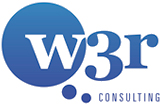The term “talent shortage” overgeneralizes a nuanced challenge for workforce acquisition. Yet when 77% of information technology leaders and 74% of the healthcare industry leaders report difficulty filling open positions, especially with healthcare IT positions, leaders need to recalibrate the way they approach their candidate search.
The healthcare IT talent shortage is most pervasive for a handful of highly complicated or niche positions. This shortage can be more effectively approached with an awareness of the existing demand for the top technical talents and knowledge of how to control the talent market. Here’s a glimpse of the most challenging technical professionals to find and how to attract them to your business.
IT Security
The virulent spread and increased threat of cybersecurity attacks has hit the healthcare industry like an epidemic. Healthcare companies account for 88% of all ransomware victims. Healthcare payers like Anthem and Premera were are among the hardest hit by data breaches in 2015. Current predictions estimate a 13.6% increase of cybersecurity technology implementation between now and 2021. To eliminate network vulnerabilities and encourage effective cybersecurity practices, demand for IT security professionals will increase.
Due to the volume of cybersecurity threats facing healthcare providers and healthcare payers, IT security candidates in the healthcare sector need superior experience. Beyond an awareness of advanced cybersecurity strategies and the ability to deploy enterprise-wide changes, healthcare cybersecurity teams need to thrive under perpetual siege. That rare trait contributes to the healthcare IT talent shortage.
Data Analysts
Predictive insight and unstructured data is changing the healthcare industry. The ability of big data analysis to review unstructured data (medical records, physician case time, employee scheduling, claims coding, and more) expands insight for both healthcare providers and payers.
Healthcare facilities can find ways to improve managed care, cost containment, and workforce management. Healthcare insurance providers can improve fraud detection and payment investigations. Since at least 80% of all healthcare data is unstructured, the ability to decode that data with a HIM perspective is critical.
There is expected to be an even greater demand for advanced analytics. Right now, only 29% of healthcare organizations are conducting precision medicine, which is below the expectations of the in the wake of the Precision Medicine Initiative. And with many healthcare payers merging to defer some of their operating costs, smart data analysts make the difference in lowering claims and avoiding mispayments. The race for better managed care and more efficient claims management will ensure that exceptional data analysts will continue to be part of the healthcare IT talent shortage.
ETL Developers
Along with data analysis, the ability to aggregate data from different sources within an organization has become indispensable. To increase the effectiveness of care solutions and claims management, data from across platforms needs to be integrated into one consolidated source. That is where the ETL Developer is essential.
More than just transferring data, the best ETL developers need to know the quality of a given source. Healthcare expertise allows ETL developers to assess the datasets and determine which quantitative and free-text sources will provide the best predictive insight. Also, robust familiarity with algorithmic data mapping and natural language process, critical components to a good ETL developer, are harder to acquire and make this role part of the healthcare IT talent shortage.
Healthcare Information Management
The ability to integrate internal medicine/healthcare insurance knowledge, business expertise, and information technology requires a very particular skill set. Healthcare information management leaders are difficult to find. Evolving medical directives and the mass digitization of medical files through EHR software has made an adaptable HIM subject matter expert less negotiable for healthcare organizations and payers.
Also, the strategic perspective of a HIM leader transforms his or her healthcare company. The rate at which healthcare mandates and technologies change requires someone with an innovative perspective to keep costs low and revenue high while delivering quality care and appropriate coverage. And in any industry, leaders who are tempered for frequent change and cost savings are a rare breed.
Solutions to the Healthcare IT Talent Shortage
In all of the above positions, the most difficult aspect of finding high quality talent is that they need expert level healthcare and/or insurance experience. Talent with strong technical expertise but weak healthcare knowledge will encounter a steep learning curve.
In extraordinary instances when technical expertise is of a singular quality, some healthcare providers or payers might consider training a candidate to become a healthcare IT professional. A less time-consuming, cost-effective way to beat the healthcare IT talent shortage is to reach out to a recruiting firm that knows when and where to acquire the highest caliber talent.
At w3r, we always are keeping close watch on industry trends and the professionals who are shaping the healthcare IT industry. Our understanding of the technical, professional, and interpersonal skills that best serve our clients makes our partnerships last. Contact us today to get beyond the specific healthcare IT talent shortage and find your next great team member.

